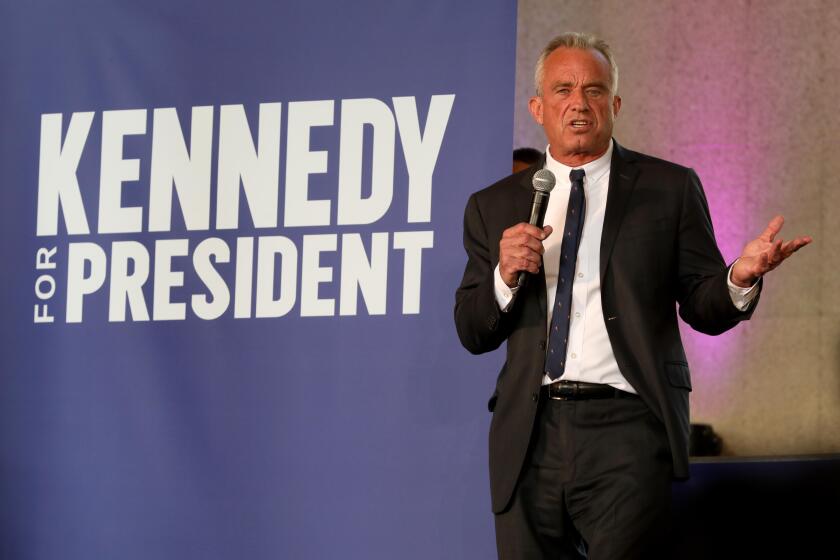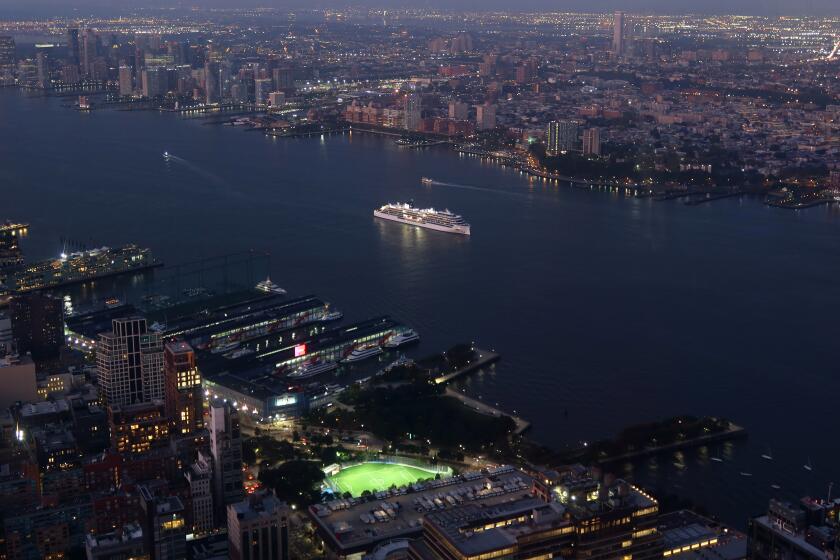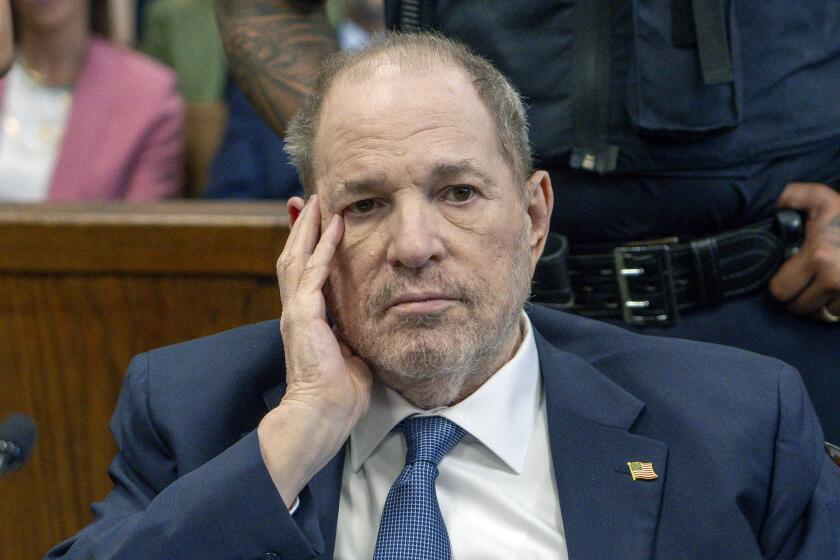India Plays New Role in Afghan Peace Search
The Indian government, which has remained neutral throughout the eight years of war in Afghanistan, has been asked by U.S. officials to take an active role in the final stages of talks on peace, official Indian sources say.
Prime Minister Rajiv Gandhi and senior Indian officials met Friday with Undersecretary of State Michael H. Armacost to discuss the Afghan peace process and developments in East-West relations in the wake of recent U.S.-Soviet talks. Armacost arrived in New Delhi on Thursday after visits to the Soviet Union and Pakistan.
A U.S. Embassy spokesman said Friday’s talks emphasized Afghanistan, focusing on the next round of Geneva talks on the issue, scheduled to begin Wednesday.
Indirect Negotiations
Under U.N. auspices, representatives of Afghanistan and Pakistan, where many Afghan nationals have taken refuge, have been holding indirect talks in Geneva in an effort to find a way to end the fighting in Afghanistan.
Armacost’s visit was the latest U.S. acknowledgement of a role for India in resolving the conflict between Afghan guerrillas and government forces, which are supported by Soviet troops. But what sort of role, and why India now wants to get involved, are questions being debated by diplomats.
India is one of the few major countries outside the Soviet Bloc that have granted diplomatic recognition to the Soviet-backed government of Afghanistan. The United States and most of its allies withdrew their ambassadors in protest and reduced the size of their missions in Kabul after Soviet troops were sent to support the government in 1979.
Also, India has consistently abstained from voting on U.N. resolutions calling for withdrawal of the Soviet troops, now estimated at about 115,000. And India has failed to use its leadership of the Nonaligned Movement to urge a stand on the Soviet intervention.
As a result, India’s assuming the role of a peacemaker at this stage, when the Geneva talks appear close to agreement, has been viewed with skepticism by some.
“I think it is a damage-limitation exercise by the Indians,” a Western diplomat here said. “I think the real Indian concern is to avoid continuing isolation on Afghanistan for having backed the wrong horse.”
Other Western diplomats concede, however, that because of New Delhi’s willingness in the past to work with the People’s Democratic Party of Afghanistan, it may well be in a good position to persuade the party to accept a settlement.
In December, the Indian minister of state for external affairs, K. Natwar Singh, flew to Rome to meet with exiled Afghan King Mohammed Zahir Shah about the possibility of his returning to Kabul to take part in coalition rule.
More recently, Gandhi sent a special envoy to Kabul to talk with Afghan officials and, according to sources, Indian envoys met with Afghan rebel leaders in Pakistan and Iran and with exiled Afghan intellectuals in several countries.
Gandhi has invited Pakistan’s President Zia ul-Haq to visit New Delhi for discussion of the Afghan issue, but an Indian spokesman said Friday that Zia had not yet replied to the invitation.
“We have been in touch with a vast spectrum of people who could play a role in an interim government,” one Indian official said.
He said the Indian government has been asked by White House officials to take part in the discussions on Afghanistan.
U.S. officials here would not comment on this report, but Ambassador John Gunther Dean is known to favor a major role for India in an Afghan settlement.
More to Read
Start your day right
Sign up for Essential California for news, features and recommendations from the L.A. Times and beyond in your inbox six days a week.
You may occasionally receive promotional content from the Los Angeles Times.






